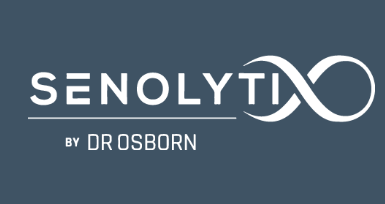Early Cancer Detection: Transforming Lives Through Screening
Cancer, a formidable adversary in modern healthcare, claims millions of lives each year. However, the landscape of cancer care is evolving, with a growing emphasis on early detection and intervention. This paradigm shift is heralding a new era in the fight against this formidable disease.
Cancer screening testing in West Palm Beach Fl
Senolytix with Dr. Osborn
1620 Southern Boulevard
West Palm Beach, FL
33406 United States
Phone: (561) – 935 – 9233
The Power of Early Detection
Early detection of cancer has been hailed as one of the most effective strategies in reducing cancer-related mortality rates. When cancer is detected at an early, localized stage, treatment options are often less aggressive and more successful. Regular screening and testing play a pivotal role in achieving this goal.
Screening: A Proactive Approach
Screening for cancer involves the use of tests, examinations, and imaging procedures to identify cancer at an early stage, often before symptoms appear. This proactive approach allows for timely intervention, greatly improving the chances of successful treatment.
Common Early Detection Tests and Screenings
1. Mammography
For Breast Cancer: Mammograms are X-ray images of the breast tissue and are the gold standard for detecting breast cancer in its early stages.
2. Pap Smear and HPV Testing
For Cervical Cancer: These tests detect abnormal cell changes in the cervix, often caused by the Human Papillomavirus (HPV), a common sexually transmitted infection.
3. Colonoscopy and Fecal Occult Blood Test (FOBT)
For Colorectal Cancer: These screenings detect abnormalities or precancerous growths in the colon and rectum.
4. Prostate-Specific Antigen (PSA) Test and Digital Rectal Exam (DRE)
For Prostate Cancer: The PSA test measures the level of PSA in the blood, while the DRE involves a physical examination of the prostate.
5. Computed Tomography (CT) Scans
For Lung Cancer: Low-dose CT scans are used for high-risk individuals, such as long-term smokers, to detect lung cancer at an early stage.
6. Skin Examinations
For Skin Cancer: Dermatologists conduct thorough examinations of the skin to identify suspicious moles or lesions.
Innovations in Early Cancer Detection
Recent advances in technology have significantly enhanced early cancer detection. Liquid biopsies, for instance, analyze blood samples for traces of tumor DNA, allowing for the detection of cancer in its earliest stages. Additionally, cutting-edge imaging technologies and artificial intelligence algorithms are improving the accuracy and efficiency of cancer screening.
The Role of Genetic Testing
Genetic testing can provide crucial insights into an individual’s risk of developing certain types of cancer. By identifying specific genetic mutations, individuals can take proactive measures, such as increased surveillance or preventative surgeries, to mitigate their risk.
Empowering Individuals through Education
Education and awareness are fundamental in the crusade for early cancer detection. Public health campaigns, community outreach, and educational initiatives are essential in encouraging individuals to participate in regular screenings and tests.
The Future of Early Cancer Detection
As research and technology continue to advance, the landscape of early cancer detection will evolve. Personalized medicine, where treatments are tailored to an individual’s genetic makeup, holds immense promise in improving outcomes.
The shift towards early cancer detection is a monumental stride in the fight against this formidable disease. Through regular screenings, innovative tests, and advances in technology, we have the power to detect and treat cancer at its earliest, most manageable stage. By prioritizing early detection, we are not only saving lives but also redefining the future of cancer care. In the ongoing battle against cancer, early detection has emerged as a powerful weapon, offering hope and promise to millions around the world. As medical science continues to advance, so too does our understanding of how to identify and combat this complex disease in its earliest, most manageable stages.
Unraveling the Importance of Early Detection
Early detection is a game-changer in cancer care. It opens the door to a range of treatment options that are often more effective, less invasive, and associated with higher success rates. By catching cancer before it spreads, we can profoundly impact patient outcomes and survival rates.
The Expanding Arsenal of Screening Tools
In our pursuit of early detection, an array of sophisticated screening tools has been developed. These include:
1. MRI and PET Scans
These advanced imaging techniques provide detailed, three-dimensional views of internal organs, aiding in the detection of cancers that may be missed by other methods.
2. Genetic Testing and Molecular Profiling
These tests analyze an individual’s genetic makeup and the genetic alterations in their tumor cells, providing valuable information for treatment decisions.
3. Liquid Biopsies
This innovative approach involves analyzing a blood sample for fragments of tumor DNA, enabling the detection of cancer and monitoring of treatment response.
4. AI-Powered Image Analysis
Artificial intelligence is being harnessed to analyze medical images, enhancing the accuracy and speed of cancer detection.
5. Biomarker Testing
Biomarkers are specific molecules or genetic changes that can indicate the presence of cancer. Testing for these markers helps in early diagnosis and treatment planning.
Tailored Approaches through Precision Medicine
Precision medicine is transforming cancer care by tailoring treatments to the unique characteristics of each patient and their tumor. By understanding the genetic and molecular makeup of a tumor, oncologists can select therapies that are most likely to be effective.
Genetic Predisposition and Risk Assessment
Advancements in genetics have allowed us to identify individuals with an increased risk of developing certain types of cancer due to inherited mutations. This knowledge empowers individuals and their healthcare providers to implement targeted screening and prevention strategies. Education and awareness campaigns are critical in encouraging individuals to undergo regular screenings and tests. Additionally, efforts to increase accessibility to screening programs and advanced diagnostic technologies are essential in ensuring that all individuals, regardless of their circumstances, have the opportunity to benefit from early detection.
The Road Ahead: Hope on the Horizon
Looking forward, the future of early cancer detection holds great promise. With ongoing research and innovation, we can anticipate even more precise and effective screening methods. This, coupled with continued progress in treatments and therapies, paints a hopeful picture for those affected by cancer. The focus on early cancer detection represents a monumental stride in our fight against this formidable disease. By harnessing the power of advanced screening technologies, personalized medicine, and genetic insights, we are reshaping the landscape of cancer care. Through these collective efforts, we not only save lives but also rewrite the narrative of cancer, offering a brighter and more hopeful future for patients and their families.


 Florida PR News...5 years ago
Florida PR News...5 years ago





